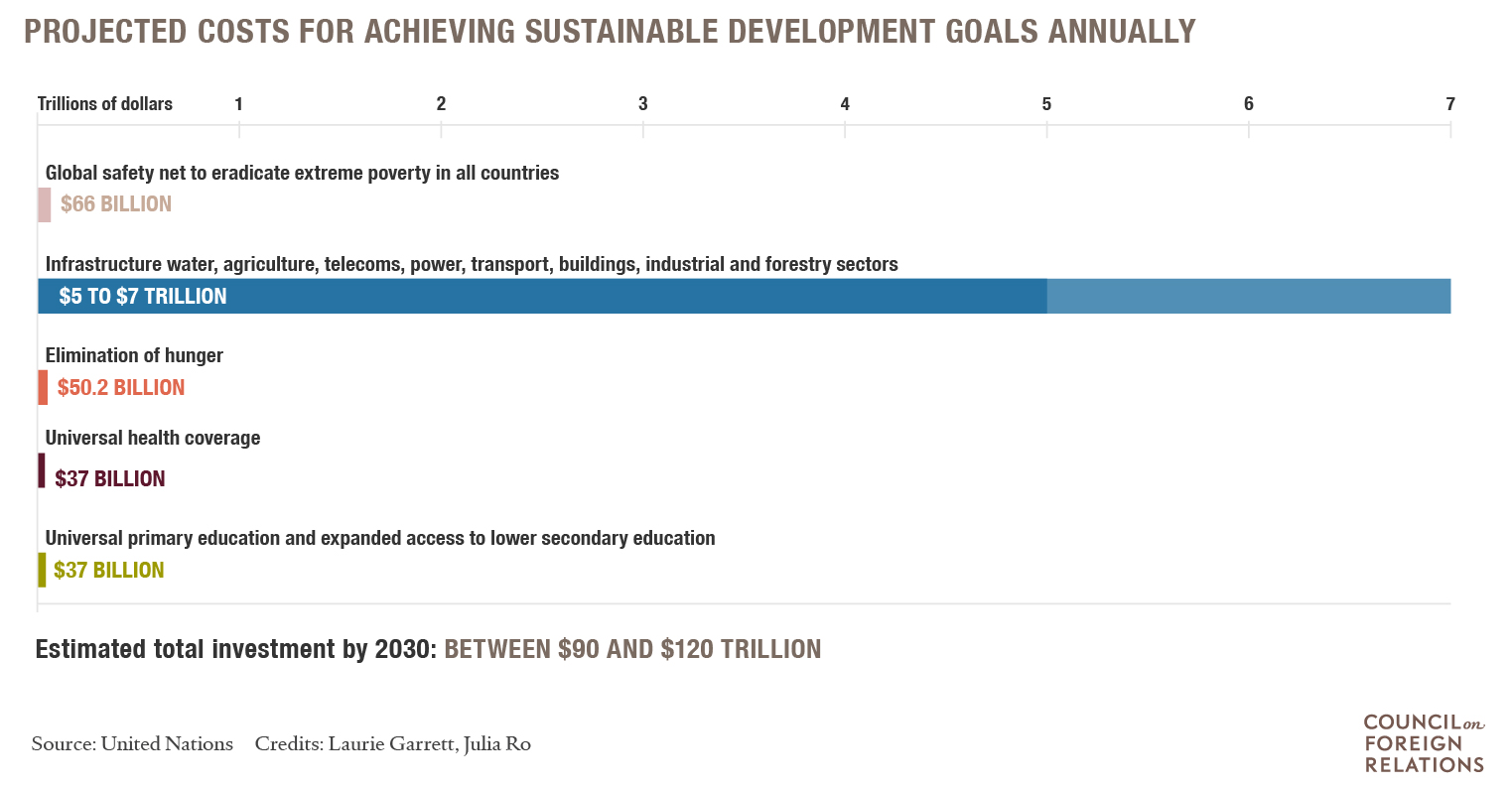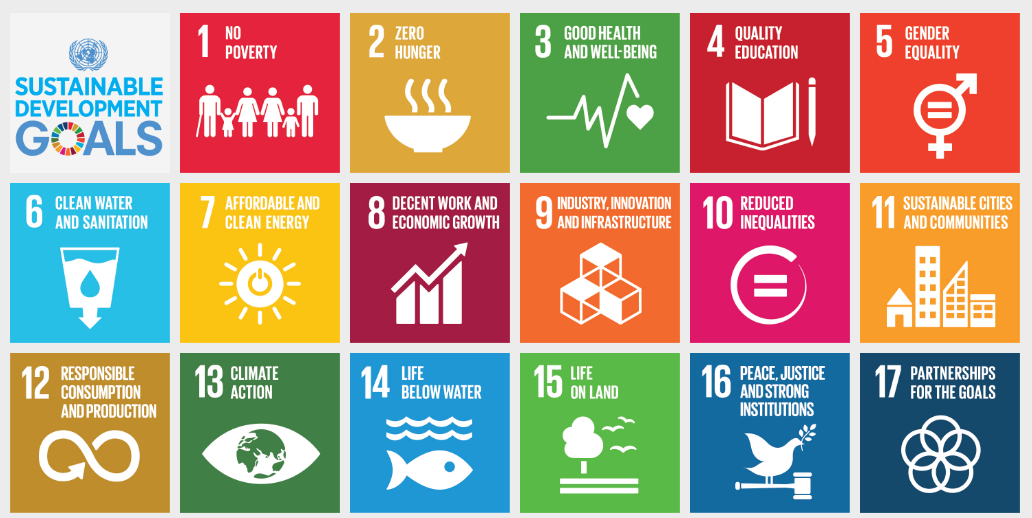Missing the next big business trend is like missing the bus to school when you were younger. No matter how fast you run, you're just not going to make it to school in time.
What if I told you 193 countries agreed to work together to solve extreme poverty by 2030?
You’d be a little surprised right? People have been looking for ‘the cure to poverty’ for a long time with little success.
Well, they did, and that's not all. They signed up to address all sorts of issues, including environmental destruction, equality, and even corruption.
To identify and combat the most pressing problems, the UN spent three years researching and debating, and eventually came up with 169 individual goals under the umbrella name; Sustainable Development Goals (SDGs).
Everything was signed in 2015, and the changes are slowly cropping up. Governments are incentivizing sustainable energies and penalizing environmental infringements. Most importantly, the hyper-conscious public is tweeting and posting louder than ever before, insisting on equality and responsibility.
The total investment costs needed to make the SDGs successful will be (at minimum) $90 trillion by 2030. There are vast areas of opportunity for monetary gain in that number. Investment, new business contracts, and job creation are a few of the sectors that will see massive growth in the next few years.
Five P's to Live By
"Free[ing] the human race from the tyranny of poverty" sounds like a daunting task too big for a large corporate to take on, let alone a small business. That's why the UN has provided us with 5 P's to help us remember the big picture. Print them out, sticky note them to your bathroom mirror and send out a staff email, 'cause these P's will keep everyone on track.
1. People
People are the lifeblood of the world, so we should take care of them. Ending poverty and hunger will boost the economy while lifting humanity to new (impressive) heights. The guy who invents speed of light space travel could be born in rural India. We need him, his family, and others like him to grow up in dignity and equality.
2. Planet
To make sure our children and our children's children don't experience a real-life version of 'The Day After Tomorrow' film, we need to take care of our planet. It sounds complicated at first, but all we've been to the moon and back. We can muster up the effort to use a sustainable amount of resources. Urgent action on climate change and the degradation of our planet will ensure the longevity and happiness of those alive today, and those alive 100 years from now.
3. Prosperity
Every single human being deserves the privileged of living a prosperous life. We should all be able to live fulfilling, meaningful lives devoid of scarcity. To support our prosperity, the progresses we make should be at harmony with the natural world and one another.
4. Peace
An inclusive world society free from violence and fear is a cornerstone of sustainable development. Peace within your own country, your own house, creates the building ground for a prosperous environment.
5. Partnership
The SDGs rely on the partnership of all countries, all stakeholders and all people. Just like doing the dishes at dinner time, everyone's participation gets us to our goal much faster.
The 17 Big Goals (and which ones you can use)
U.N. Sustainable Development Goals
17 goals is a large chunk of information to bite off and swallow. Even larger when you realize that each goal is broken down further, amounting to a total of 169 individual goals. Besides, goals are great, but they don't tell you what to do or how SDGs will help keep you in business.
The aware consumer or the consumer that has been made aware will flock to businesses who practice sustainability in line with SDGs. For example, if you are a restaurant, you can switch your supply to local meat and veg and only use sustainable fish on your menu, the locals will happily gobble it up. If you are printers, you could offer recycled paper at as an alternative for your customers, helping them reach their own sustainability goals. These actions are both in line with Goal #12, Responsible Consumption and Production.
4 Things to get you started that don’t cost and arm and a leg
Although each company has different areas that they can target, the following are the easiest and the most universal to implement.
1. Make others aware: Put the SDG logo on your website
Make them aware by telling them about SDGs and opening dialogues. Bring SDGs up in meetings and have regular brainstorming sessions. Put the SDG logo on your website along with a short sentence or two about your commitment to one or more goals.
2. Do something about the wage gap
Goal number 5 is gender equality, and the wage gap falls right into that. Do an internal assessment of your business and see if you are paying women less than men. If you are (and statistically you are), find out why, and bring women up to the same pay level as quickly as you can.
3. Get a Recycle Bin in the Office
And recycle the rest of the waste that your business produces for that matter. Falling into Goal #12 (Responsible Consumption and Production), recycling means you are doing your bit as a responsible consumer. If you manufacture products, you can take it to the next level by making sure your products don't end up in the belly of a whale.
4. Buy Electricity from a Sustainable Source
You don't need to cover every square inch of your building with solar panels and stick a windmill outside to be in line with Goal 13 (Climate Action), you just need to get your electricity from a sustainable source. Choose to buy Green Power like Google and Amazon and run your company off sustainable energy sources instead of coal.
But wait, there's more...
Being a martyr for humanity and trying to follow all 169 goals isn't going to get you very far (it might get you bankrupt, which would be against Goal # 8, Decent Work and Economic Growth). Instead, choose one or two goals you feel align with your business the most and brainstorm ways you can change and improve your business practices.
If you think this all sounds like a lot of work without much gain, remember this: Consumers are more aware than ever before. If you don't practice sustainability, they'll vote with their feet and choose a different product or service. You can't afford to fall behind on this one, so you better start putting the word out that you are doing your part in the global community.
Author:
Claire H.
Writer




